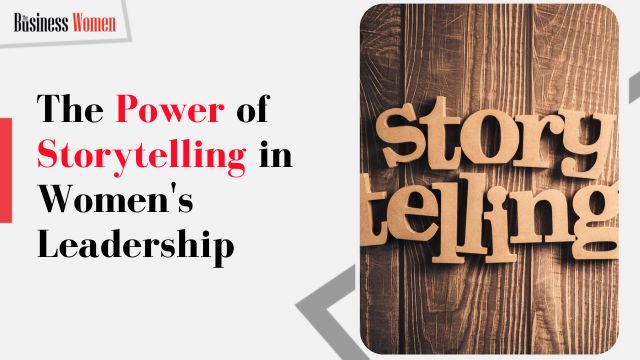Storytelling is a powerful and timeless form of communication that has the ability to captivate, inspire, and influence. In the context of women’s leadership, storytelling becomes a potent tool for driving change, breaking barriers, and making a lasting impact. As women leaders in the business world continue to rise and shatter glass ceilings, harnessing the power of storytelling can elevate their leadership and amplify their voices. This article explores the significance of storytelling in women’s leadership and how it can be leveraged to inspire, connect, and drive meaningful progress.
The Art of Storytelling:
Storytelling is more than just conveying facts and information; it is about creating a narrative that resonates with the audience on an emotional level. Throughout history, stories have been used to pass down knowledge, share experiences, and shape cultures. In the realm of women’s leadership, storytelling empowers women to share their unique journeys, experiences, and perspectives, leading to greater understanding, empathy, and appreciation.
Connecting Through Shared Experiences:
As women leaders share their personal stories, they create connections with others who may have faced similar challenges or aspirations. By openly discussing the hurdles they have overcome and their journey to success, they inspire others to pursue their dreams, instilling a sense of empowerment and confidence in the next generation of women leaders.
Authenticity and Relatability:
Storytelling allows women leaders to showcase their authenticity and vulnerability. By sharing their triumphs and setbacks, they demonstrate that leadership is not about being flawless but about embracing one’s humanity and learning from experiences. This authenticity makes women leaders more relatable, approachable, and trustworthy.
Inspiring Change and Driving Impact:
Powerful stories can ignite passion and motivation within the workforce and society at large. When women leaders use storytelling to communicate their vision and mission, they can rally support and inspire collective action toward a common goal. Stories have the power to shape values, transform perspectives, and drive meaningful change.
Breaking Gender Stereotypes:
Through storytelling, women leaders can challenge gender stereotypes and bias that may still exist in some industries. By showcasing their expertise, achievements, and leadership qualities, they redefine societal expectations and prove that leadership knows no gender boundaries.
The Role of Storytelling in Business:
In the context of business, storytelling can be instrumental in several areas:
Company Culture: Women leaders can use storytelling to shape and reinforce a positive company culture that promotes diversity, inclusivity, and empowerment.
Branding and Marketing: Storytelling is a powerful tool in brand building and marketing. Sharing the story behind the brand and its values can create a strong emotional connection with customers.
Employee Engagement: Stories about successful women within the organisation can boost employee morale, foster a sense of belonging, and increase engagement.
Stakeholder Relations: Authentic stories can strengthen relationships with stakeholders, including investors, partners, and customers.
Crisis Communication: During challenging times, storytelling can be used to address issues transparently and regain trust.
Tips for Effective Storytelling:
Know Your Audience: Tailor your stories to resonate with your target audience and their interests.
Be Authentic: Share stories that are true to your experiences and values, as authenticity creates a deeper impact.
Emphasise Emotions: Stories that evoke emotions are more likely to leave a lasting impression on the audience.
Keep it Concise: While storytelling is powerful, it is essential to keep the narrative concise and focused.
Use Visuals: Complement your stories with visuals, such as images or videos, to enhance the storytelling experience.
Conclusion
In the ever-evolving landscape of women’s leadership, storytelling has emerged as a vital tool for women leaders to shape perceptions, inspire change, and drive progress. Through the art of storytelling, women leaders can break barriers, challenge stereotypes, and build a more inclusive and equitable business world. At The Business Women, we celebrate the power of storytelling, providing a platform for women leaders to share their experiences, insights, and success stories. By leveraging the power of storytelling, women can continue to redefine leadership, inspire others, and shape a brighter future for women in the business world in India and beyond.









